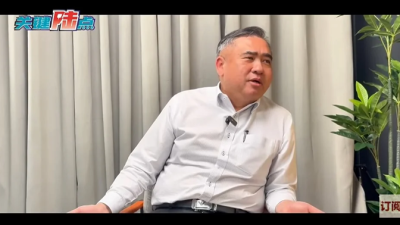
The “student-versus-absent-Sabah-teacher case” is an interesting study of the individual trying to bring about positive change for all, and the failure of the establishment as it shifts all blame to the victim.
The senior counsel in this case is well aware that the student’s allegations hide a deeper problem in our education system.
His hostile line of questioning is probably meant to disarm the student, but it was his clumsy attempt to shift the blame from the useless teacher to the student, that angers the rakyat.
This case is all the more important because it is about the weaker, smaller person daring to speak out against the stronger and more powerful establishment.
In October 2018, student Nafirah Siman, who was 19 at the time, sued her English teacher Mohd Jainal Jamran for his alleged seven-month absence at SMK Taun Gusi in Kota Belud, Sabah. His absence occurred in 2015.
During his absence, Jainal appeared for just one week when the education ministry and state education department officials visited the school.
As far as everyone was aware, he did not have a long-term illness. The students’ complaints fell on deaf ears.
Nafirah is not the only student to sue Jainal. Four other students also filed a suit against him and the school head, Suid Hanapi, the education ministry director-general, the education minister, and the government of Malaysia.
Wouldn’t you do the same? The teacher and school had failed them, and the headmaster had not discharged his responsibilities.
Nafirah alleged that headmaster Suid threatened the students and forced them to write favorable comments about the teacher, whilst Jainal was told to “fabricate” his attendance record.
The students’ reasons for suing Jainal ranged from wanting to highlight the impact of absenteeism on the students’ studies and their education, to prevent other students from similar victimization, and alert Malaysians about the largely unknown but serious problem of absenteeism among teachers.
In her court appearance on May 16, senior federal counsel Mohd Hafizi Abdul Halim subjected the 23-year-old Nafirah to a humiliating line of questioning.
He demanded to know why she had taken two months before complaining to the school head about the absent Jainal. He blamed her delay on her disinterest in her studies.
A defiant Nafirah said she had lodged complaints to other teachers about Jainal, hoping that an in-house solution could be found.
During the two months wait, whilst hoping for the matter to be resolved internally, Nafirah and her peers finally plucked up the courage to consult the principal.
The senior counsel, Hafizi, appeared to dismiss Nafirah’s explanation and instead attacked her poor examination results.
He listed the poor grades for each subject she took in her examination, and mocked her for failing some subjects.
He asked if she had done badly in the other subjects because the teachers had failed to perform, or if they had also been absent from teaching. He asked if she had sued the teachers for the subjects in which she failed.
There is much absenteeism and shoddy work practice in our civil service, but no one dares to voice against it.
Hafizi is daft to shift all blame from the lazy “gaji buta” teacher to the student.
The senior counsel is aware that the case highlights a teacher who did little or no work, who cheated the system, as he was paid a monthly salary.
It is about the teaching fraternity and a school system including the school’s administration, which failed to help the students.
It is also about a useless and incompetent school head who was not aware that a member of his teaching staff was absent for most of the year.
The teacher, his peers and the head of school are a disgrace to their profession.
A teacher who is largely absent sets a bad example to the students and will undermine the confidence and self-esteem of his pupils.
The senior counsel forgets that Nafirah and her peers were extremely courageous to lodge a report and take it to the litigation stage.
These students dared to go against a powerful system backed by professionals, lawyers, experts and the state.
This absent teacher is a reflection of the many incompetent government servants in the civil service.
There is much absenteeism and shoddy work practice, but no one would dare to lodge a report against a lazy civil servant because the allegation is that they will close ranks.
The person who lodges a complaint risks his application papers being lost, or he may face delays for whatever he applies.
The senior counsel knows that Nafirah’s allegations have exposed the deep rot in the teaching profession, including the education department and ministry.
A teacher who is absent for a day, will disrupt the proper functioning of the school day, but a teacher who is chronically absent (for 10 or more school days) will undermine the quality of schooling and learning, reduce student attendance, reduce the confidence of parents in the school and the school will incur extra expenses to pay supply teachers.
These questions need answers:
Is Jainal protected because he has links to the top?
Was a cover-up involved because it reflects the incompetence of the principal, school and education department?
Was the Parent-Teacher Association not aware?
Why did the lawyer representing three students in their suit against Jainal abandon them halfway through the trial?
Will the minister of education address this serious but largely unknown matter of teacher absenteeism with urgency?
Sources:
- Malaysiakini: Witness: I’m testifying against ‘truant teacher’ so others won’t suffer
- Malaysiakini: Student sues teacher for not coming to class for 7 months
- Malaysiakini: Absent teacher case: Federal counsel questions former student’s grades

(Mariam Mokhtar is a Freelance Writer.)
ADVERTISEMENT
ADVERTISEMENT








































